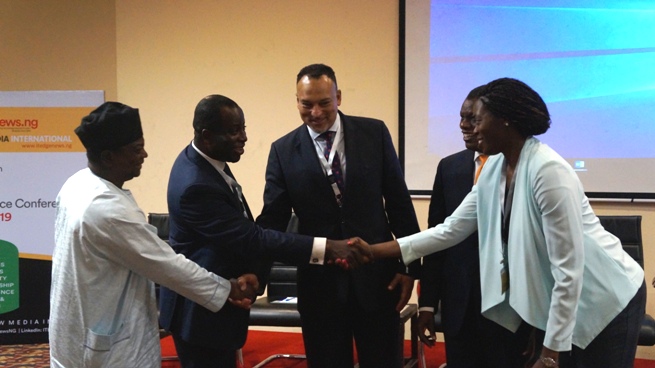Stakeholders in the country’s information, communication and technology (ICT) industry have emphasised the need for effective regulations to drive convergence in the sector.
They made their positions known during the 10th West African Convergence Conference, which held in Lagos, recently.
They pointed out that several services that were hitherto seen as very different and unrelated were becoming more closely integrated and unified as technology advances and called for efficient government policies to meet current realities.
The event organised by KNOWHOW Media and Market Intelligence Limited (KMI), brought together decision makers in government and the private sector, entrepreneurs, professionals, investors and the market drivers to chart new courses for development in a converged Information Technology (IT) world.
Speaking on the theme of the conference: ‘Regulations Disruptions Employability Entrepreneurship and Convergence Broadband and Broad Plan,’ the Executive Vice Chairman of NCC, Prof Umar Danbatta, noted that the convergence of IT, Telecom and Media had come of age, adding that new opportunities and threats were being thrown up.
Danbatta, who was represented by Head, Wireless Networks at NCC, Anthony Ikemefuna, added that existing industries were being disrupted, while new industries were being created and new competencies and skill-sets are required.
“The increasing convergence of the ICT and media industries is a trend that we’ll be watching as it has tremendous implications for the types of services that will be delivered, the ability to connect to new audiences, and even the types of networks built to power the new data-intensive customer demands,” Danbatta said.
The EVC declared that broadband connectivity and convergence would be difficult to achieve without effective regulation.
He said regulations would represent a powerful instrument to promote efficiency but their impact depends on good implementation and effective compliance.
“The NCC has over 12 enforceable regulations for the telecommunication industry and more are being developed to cater for emerging technologies in the sector,” he added.
The CEO of Backbone Connectivity Network (BCN), Ibrahim Dikko and Managing Director of Rack Centre, Tunde Coker, were of the view that supporting the data ecosystem that exist, would be depended on how much of broadband the Nigerian environment can offer.
Convergence of technologies and services are imperative on the availability of broadband and right regulations to foster and not impede growth, they said.
The President of Association of Telecoms Companies of Nigeria, (ATCON), Olusola Teniola, tasked all stakeholders on the need for collaboration among government and private sector players if the new timeline of 70 per cent broadband penetration by 2024 must be met.
He agreed with Dikko and Coker that “broadband should be a privilege right,” saying broadband remains key in driving all sorts of growth, including converged technologies and services in the 21st century.
Also speaking, the Head, Lagos Regional Business office of Nigerian Communications Satellite Limited (NIGCOMSAT), Ibiye Ukoko, said with convergence, voice and data services were merging to belong to a single data stream, adding that a single device like mobile phones can handle calls, instant messages, stream television, photography, email, among others.
“Some services are becoming obsolete with convergence however a lot of other opportunities are open to those that can innovate in developing new applications” she said.
Source: Thisday































